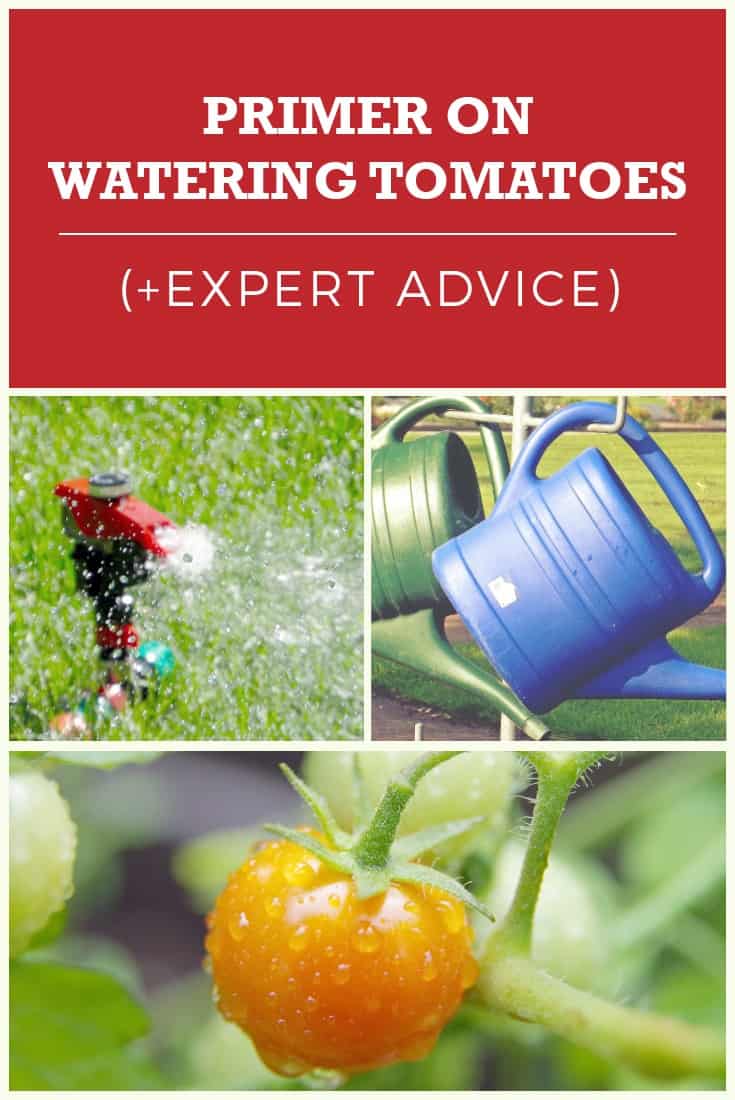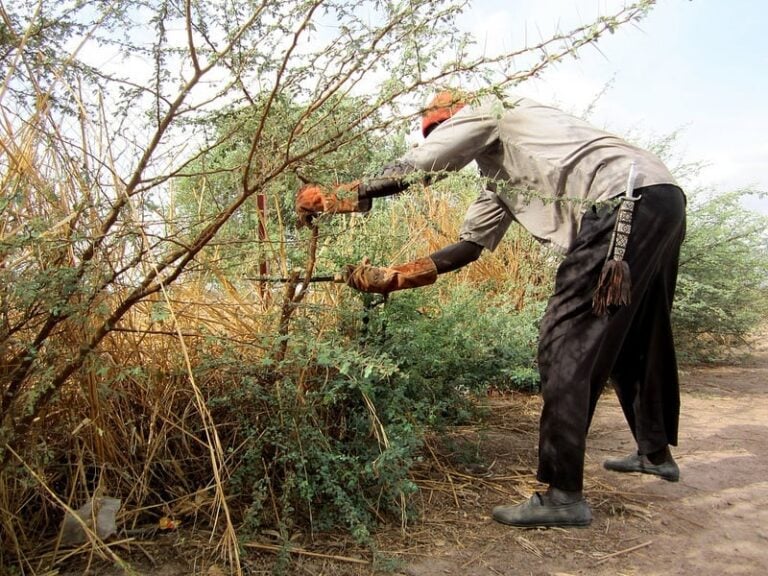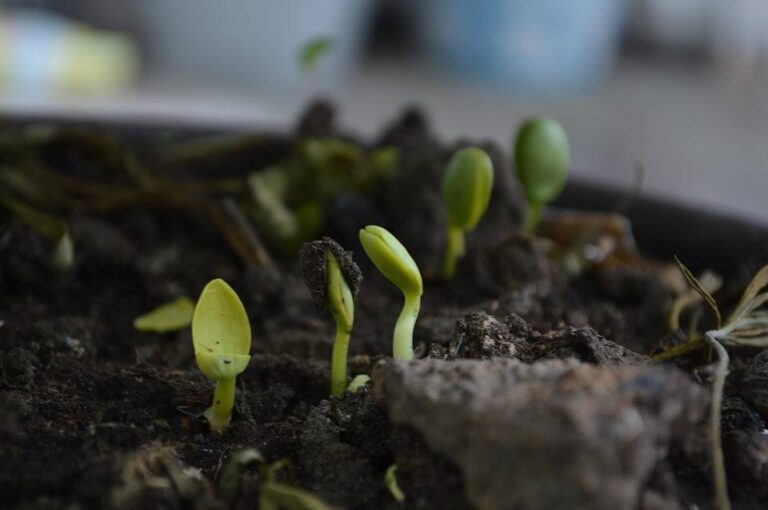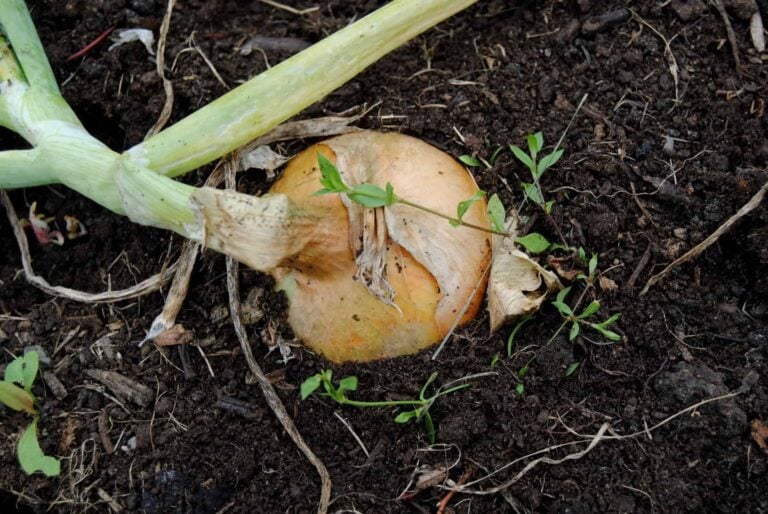Health Benefits of Gardening
Introduction
We often assume that gardening is good for our health, but most of us do not actually know why this is.
Gardening has benefits for our physical and mental health, and even for people who are not totally mobile it can reap great health benefits.
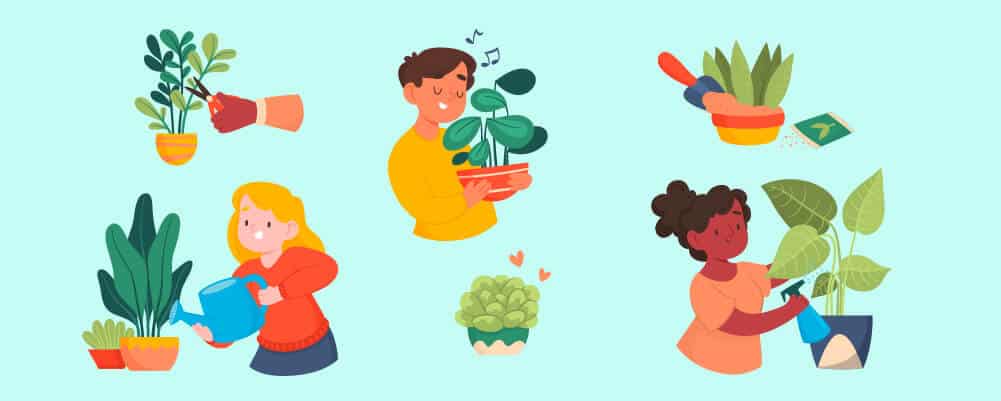
Over 2020 and 2021, so many people started gardening and found that it was actually more enjoyable than we originally thought.
Gardening gives us something to do, a reason to get out of bed when we aren’t feeling so hot.
It gives us motivation, and something to care for that gives us purpose when we are in a bad place.
It means having to get out in the sun, soak up that vitamin D, and get some fresh air.
Plants and gardening can do wonders for our health. We just never seemed to realize it before, and the world is finally starting to see the full benefits of plants on our overall health. No matter what kind of garden you have, it can do you a world of good.
[toc]
Wellbeing And Gardening
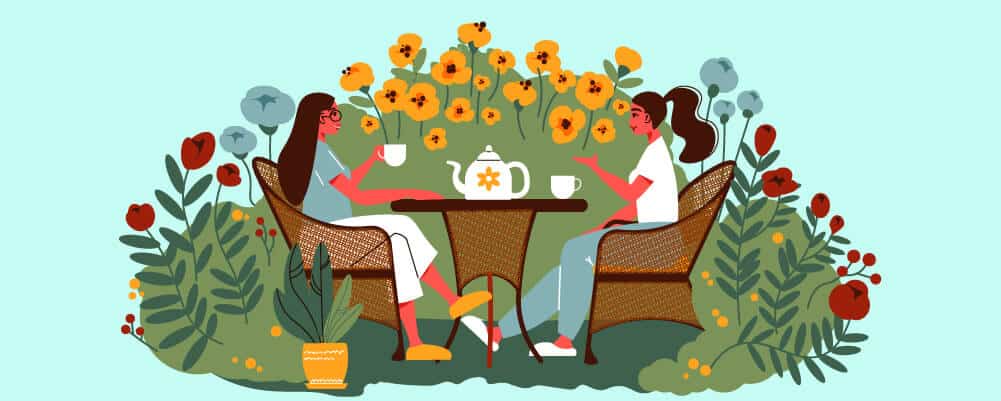
Gardening and wellbeing are well associated. Even if you are introverted, even if your introversion is extreme, gardening can get you outside, and help you get much needed fresh air.
Plants naturally make us happy and peaceful. They can be calming in times of stress, and shift our focus from chaotic human life for a time.
There is much that is to be said for how beneficial gardening can be for us, but instead of ranting at you all day, we will start by giving you the stats, the studies and the research that has been done into this already.
Research
Spending time outside is good for our mind and bodies, as has been shown by research. You don’t need a scientist to tell you this though, you can tell yourself by just going outside.
You’ve probably experienced these benefits already. If you have felt stressed from a long day, or if your work or family life is hard, some time outside alone with nature can be a true form of therapy that costs absolutely nothing.
Most of us don’t live near a quiet forest, vast lake, or somewhere outdoorsy and quiet away from bustling human life, but our gardens can be a natural escape all in themselves.
Gardening is your nature zone, you make it, maintain it, and in return it can give you peace and therapy. Time with mud, flowers, leaves, and insects to get you away from the stress of everyday life.
It’s just that simple really.
Studies
There have been plenty of studies into this topic. Paul Camic, PhD, who is a professor of psychology has led many of these, showing that horticulture can have benefits for our mental health.
In one review study he conducted over a series of separate studies that while gardening as a treatment plan actually helped to fight depression in emotional, social, physical, spiritual, and vocational wellbeing, it also helped to relieve symptoms of anxiety and depression as well.
Carmic also published a study as well, in which his researchers had shown that having community gardens in an area actually boosted the connection within the community, and boosted the well-being of those who joined in.
Data from these studies showed that gardening actually gives people a space to have for oneself, it provides meaningfulness to an activity, and brings a feeling of being connected. It also improves mental and physical health as well.
However, with being outside and feeling connected it is no true surprise that it should boost mental and physical health.
There were many studies conducted over the course of the pandemic about this, and how gardening affected people during the pandemic. Many noted it helped to relieve stress and negative mood.
15 Health Benefits Of Gardening
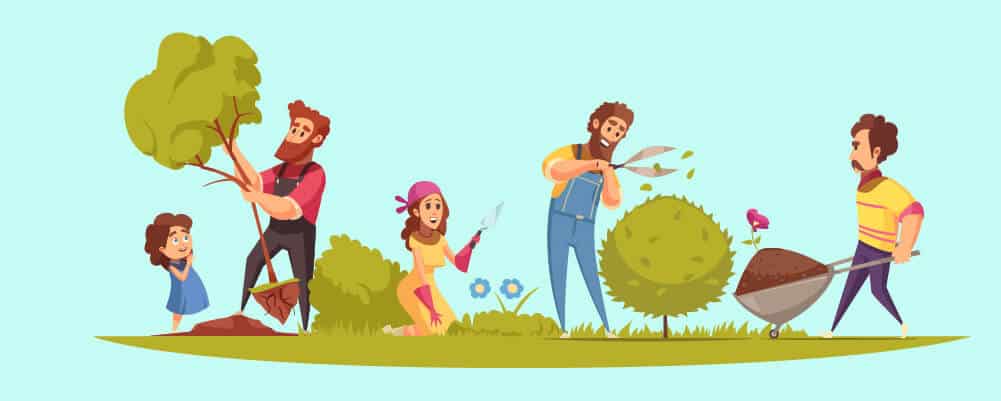
Obviously, we have noted plenty just how beneficial and good gardening is for mental and physical wellbeing in people. However, it is more than just this. Gardening brings many benefits to us.
In turn this plethora of benefits weighs up and is what makes such a significant difference to our health, overall.
We cannot possibly list every single benefit of gardening there is, but there are 15 primary benefits of gardening on your health.
So, let us take a look at all these benefits, and help you see why it is a hobby you might want to take up.
Improves Strength
Let’s not pretend that gardening is not hard work. It is, you spend a lot of time working with tools, using your muscles, especially in your hands. Bending down, and using muscles you may not be used to using.
Gardening does actually build up strength in your body. We are so used to sitting at a desk every day that we often find ourselves with less strength than we would like.
Gardening gives us that chance to work up our muscles.
It especially helps us in our hand strength, we do not use our hand muscles as often as we may think, even if we spend all day typing or texting. Gardening makes us use different muscles in our hands, strengthening us in a whole new way.
Maintains Memory
As we get older, we tend to worry more about whether dementia or Alzheimer’s will keep up on us in our older years. Memory is so core to who we are, that we do not want to lose this absolutely part of ourselves.
However, a study conducted in 2006 found that gardening could potentially lower the risk of developing dementia by at least 36%. There was research conducted into over 2,800 people over the age of 60 for a decade and a half.
The conclusion was that doing physical activity, especially gardening, was able to reduce the chances of dementia creeping up on us in later years.
This is in part because gardening keeps our minds active, healthy, and functioning. We have to remember things, forcing our minds to keep going and sustaining memory.
Boosts Mood
Gardening also boosts your mood, even if it is not sunny. There was a study done in the Netherlands, this study suggested that gardening fights stress like nothing else. It does this even better than a great deal of other hobbies.
People who did this study were told to perform a stressful task then go inside a read, or go outside and do some gardening for 30 minutes.
The group who did the gardening reported to have gotten much better soon after doing the gardening, and their blood tests backed up this as well. Their blood showed much lower levels of cortisol – the stress hormone, in comparison to the reading group.
Stress can make us utterly miserable, but gardening reduces this stress, and thus it helps us to boost our mood. Let’s not forget that successfully growing something releases a happy hormone as we have achieved something as well!
Stress Reduction
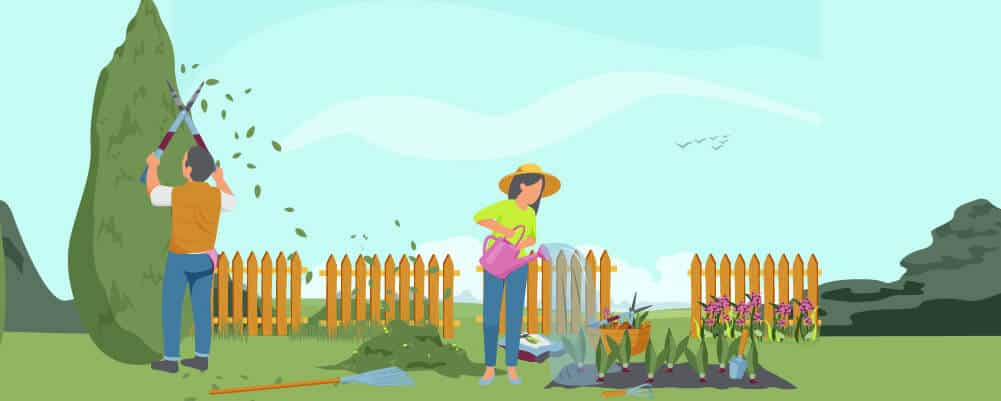
Speaking of stress reduction. This does not mean just in relation to work or family related stress. It also reduces the stressful symptoms of anxiety and depression as well.
Gardening gives you the ability to focus on something totally different, totally unrelated to anything stressful, and forces your mind to focus on that. Your mind cannot get anxious or depressed if it doesn’t have a chance to.
Gardening maintains focus, and if you love your plants, it maintains a great deal of your focus. So, it gives you a goal.
There has been a lot of talk of mental health, death and such in recent years, and gardening takes us away from this, it brings our minds to think about something else, and relaxes us in a different way, focusing on living things.
Helps Fight Diseases
We are somewhat like plants. We can technically photosynthesize. This is where plants make food from sunlight. However, we don’t make food from it, we make happiness.
Our skin absorbs the sunlight to make vitamin D. Only 30 minutes in the sun can create between 8,000 and 50,000 IU of vitamin D in us. It is so essential for body functions in our bones and immune system.
Being in the sun can actually lower our chances of getting; breast cancer, colorectal cancer, prostate cancer, bladder cancer, non-Hodgkin’s lymphoma, and MS.
With low vitamin D levels we are more likely to get psoriasis flares, diabetes, and such.
Sunlight literally helps our bodies fight off illnesses in a way we never might have thought.
Promotes Sleep
It shouldn’t be a shock to you that gardening promotes sleep either. It might seem like someone who is gardening is just lightly tinkering around in the backyard, but it is actually hard work.
Gardening is exercise, not that it feels like it when we are doing it. Raking and cutting grass are like moderate exercise, but shoveling, digging and chopping up wood are more of a vigorous kind of exercise.
Working in the garden means that every muscle group gets work out of some form. This can be quite tiring, of course. Since it can be tiring and like doing a workout without even realizing it does make you sleep better.
It’s like doing a moderate gym workout, except you do not even notice it because you’re so focused on the garden.
Therapeutic
Gardening is also therapy for the soul. No matter whether you are suffering from depression, anxiety, work stress or family stress, recovering from an addiction, or just feeling down it becomes a great source of calm for many.
It offers a unique kind of therapy for people of all backgrounds, you do not need to have a huge garden, a tonne of space, or a wild idea, but it can be a massive mood booster and gives you a chance to get outside.
It makes you focus on that specific task, and while you do this, everything else fades away until it is just you and the plants.
People who go through therapy sessions often are recommended to get a plant, even just a houseplant, because it requires us to be there, we have to water it, fertilize it, and make sure it gets enough sun.
Gardening is just a more grand version of having a houseplant.
Increases Weight Loss
If you love plants, you will be glad to know that gardening is considered exercise. You can actually burn a good 330 calories doing just a single hour of light gardening outdoors. This actually burns more than walking for an hour.
People of male and female genes who garden regularly have been shown to have lower BMIs than people who did not do gardening.
So, even if you do not do any other activity, gardening every day can increase weight loss and help you shed those extra pounds while getting a dose of vitamin D, and some fresh air.
Burning off these calories without having to mindfully do any exercise and instead just have fun and enjoy your garden is so easy.
Offers A Feeling Of Connection
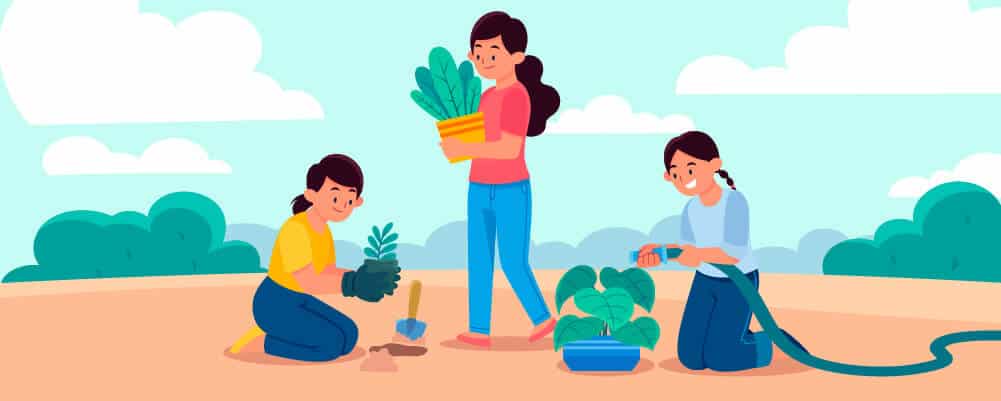
One of the biggest problems in older age is loneliness and a lack of connection, often stuck in homes and not seeing people as often as we would like, we all got a taste of this during 2020.
Gardening gives you a chance to feel a connection. Many people who are avid gardeners will often find themselves talking to their plants, not in a strange or crazy way, but in a way that feels like a connection.
Remember, you tend to these plants every day, care for them, help them grow strong, talking to them is much like talking to a pet.
Not only that but with gardening communities springing up, it gives people a chance to socialize when they usually wouldn’t have this chance to do so.
Helps Manage Eco-anxiety
For so many of us, watching the constant effects of climate change, although slow and gradual, becoming more noticeable by the day, can create a horrible feeling of guilt.
Although we alone cannot do anything, it is the major corporations who need to acknowledge their faults on the planet. Many of us feel anxious and guilty about this.
We can combat the negative feeling by gardening, growing plants, or even trees from saplings in our own yards to help us feel like we are helping.
Not only this, but we can go even further, using manual tools and not gas-powered ones, using rain barrels and mulch to cut down on water consumption. Compost to reduce waste, and turn your ward into a wildlife habitat, growing bee-friendly plants and wildflowers.
Planting trees is a great way to go, and evergreens are even better. They absorb carbon dioxide and are really easy to grow, most evergreen trees do not need a huge amount of care and are very strong, so they’re a good place to start.
Increases Self-Esteem
Many of us think of ourselves as not being good at much these days, this is the typical thought of someone feeling beaten down, depressed, anxious, or worried. But, even if you didn’t think you were born with a super green thumb, you can still be good at it still.
Once you’ve done some tilling, some planting, watering, fertilizing, nurturing, and even harvesting, you can feel so different.
You might look in the mirror and see someone new, someone who can grow things and nurture things, someone in tune with mother nature.
It is the magic of accomplishment, doing new things. Even if you had only a few successful plants, you did it!
Heals And Empowers
Often, in our world, we do not always feel justified, verified, we feel a little trapped, but gardening is our space, it is our place, and we are looking after it.
In fact during the forced internment of Japanese Americans in the American West, gardens sprung up all over the place. There were all types of gardens popping up that helped them to reclaim land and their identity.
Gardening allows us to be ourselves, in our space in a peaceful, creative manner, it opens doorways to us and gives us a sense of empowerment. ‘This is mine, I made this’. It also gives us a sense of agency, something we can do.
It is yours, and you made it that way, you left your mark on the land.
Promotes Exercise
As we already know, gardening is exercise in its own right, you actually do a lot more exercise than you might think when you are toiling away in the garden.
But not only this, you don’t have to look after yourself more in the garden as well. You are more careful about your safety gear, you listen to your body more, you keep an eye on your surroundings too.
You get in positions you never usually would, and find yourself doing squats just to monitor your plant growth, you do lunges to step over your planter, end up doing knee push-ups as you do some delicate nurturing.
You complete a whole work out while you are gardening, and you do not even realize it. You might even do more in the garden than you could even dream of doing at the gym.
Promotes Healthy Eating
Gardening doesn’t just have to be flowers, trees and bushes, you can grow your own fruits and vegetables. This can be SO fulfilling. What’s even better about this is that if you grow a productive vegetable garden, you will be more tempted to have a healthier diet.
You will want to taste and eat the fruits and veg that you put so much hard work into growing and caring for, taste the payoff of your hard work. You’ll shove the junk food aside and find yourself falling in love with fresh veg and fruits.
Gardening often helps us develop a good and lasting habit of getting enough fruit and veg in our diets. Not only does it help us to include these foods in our diets, but if you grow them with your kids, it’ll encourage your kids to try new foods too!
Helps Lower Blood Sugar
As we are not only eating healthier thanks to growing new foods in our gardens, fruits and veg that we may feel disinclined to pick up at the overpriced costs of a superstore, we are ingesting less unhealthy foods.
However, fresh fruit and vegetables from your garden are yours, and not only are they healthier due to their freshness, and how eating them instead of a big bag of chips or a box of chocolate is healthier, there is another upside.
You grew these yourself, so you know that you are eating fresh foods, not treated with any pesticides or preservatives, straight and fresh from plant to plate. There are no chemicals there, no poisons, just fresh foods you grew yourself.
Fruits and vegetables do contain natural sugars, but these natural sugars are good sugars, and they are better for us than the processed stuff we get in junk foods, which in turn lowers our blood sugar levels and makes us feel much better!
How To Start Gardening
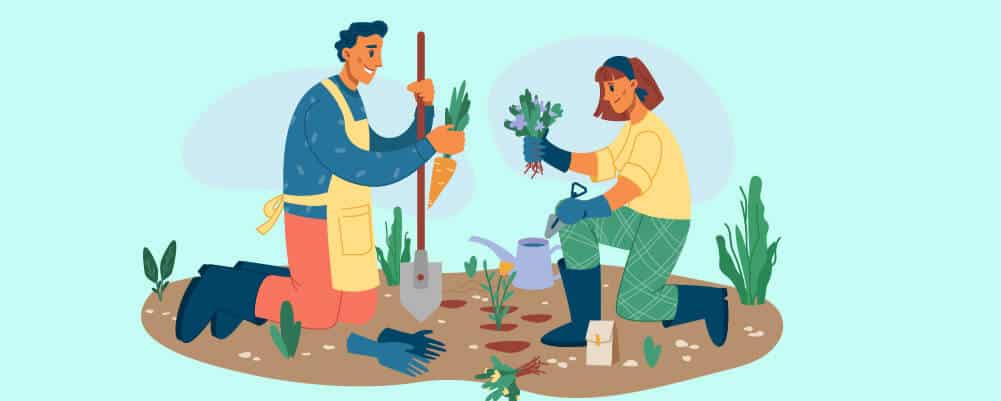
Have we tempted you?
Do you feel the itch to get green?
If you are feeling the itch to get a green thumb and start gardening, we cannot blame you. It has so many benefits, it is hard to resist.
So, let’s get you on the way to starting your own gardening venture that is right for you!
Decide What You Would Like To Grow
The first step is to come up with an idea of what you want to grow. Are you leaning more towards flowers, trees, and shrubs, or are you a vegetable person? Maybe even a mix of the two, splitting your garden into two sections?
Just remember, if you are going to grow a crop, make sure it is something you will eat. Pick ones you know your family will eat.
You also need to make sure your area has the right climate, and that you are planting at the right time. Most plants will require planting in spring, but some time planting in the fall, so make sure you know the lifecycle of a plant and when you should plant it.
It is also worth looking into what grows well in your local area and what doesn’t.
Choose The Location
How you will need to choose the location. Plants will all need different things. Some plants will need a lot of sun, some won’t be too bothered. Some trees can grow in partial shade, but most vegetables and fruits cannot, they need full sun.
As you choose what you want to grow, picture your garden or even draw up a plan, and look at what will go where depending on how much sun it needs.
Consider the sun in the sky above your garden as well, think about walls, shrubs, and fences and how they will impact the suns’ placement in your garden, and therefore the things you are growing.
You should also think about access for watering, picking and nurturing your plants.
Finally, do not forget to consider wildlife and children. Consider the wildlife, birds that may peck at plants, get a bird feeder to keep them satisfied, got pets? Keep your garden out of their range. And keep the kids’ play area away from the planting areas.
Plan Your Garden Beds
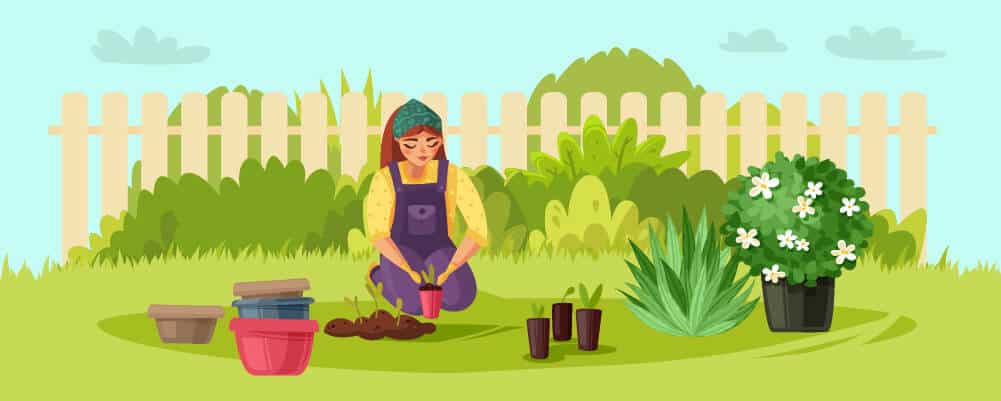
Once you have an idea of where things will go you need to decide on the garden bed type. Some people love raised beds, although they can make it easier to work in your garden they can dry out fast. In dry areas, sunken beds gather moisture.
Raised beds are often also ideal for avoiding pests.
Think about blocks/ beds in single rows, and you should remember that length should be 3-4 ft across, so you can reach the center easily, and 10ft long or less.
You should plant in a grid pattern, so it can be wise to plan this out too.
Test Your Soil
Many newbies to the gardening scene do not know this, but you should test your soil, soil will have a pH level. Find out if your soil is acidic, alkaline, or neutral in its pH levels. Also consider if there is any risk of contamination of your soil from outside sources.
Consider nutrients as well, plants need nitrogen to grow well, if the soil is not nutritious enough consider fertilizer on a more regular basis.
A majority of crops in your garden will need neutral pH 7 soil, although some may like slightly acidic, or slightly alkaline soil.
Always find out what kind of soil the plant needs first and then supply the correct soil to the correct plant, and do not mix the two, because cross-contamination can happen way too easily.
Build Your Soil
If you decide to start off with sod, you will probably need to cut it up and repurpose it, till it, or lay down some damp card or paper to smother it and build your bed on top.
It is best to prepare your sod in the fall, but you can also do this in spring.
A majority of plants enjoy well-draining, deep, and fertile soil that is rich in organic matter. Plant roots require good soil to produce flowers, vegetables and fruits.
The magic happens in the soil, so you want it to be good stuff.
Once you have started your garden, you will start to appreciate this more than it will improve with each year, and a healthy and vibrant soil will mean plants that are the same also, and they will be naturally more resistant to pests and gain extra nutrition.
Choose The Right Seeds
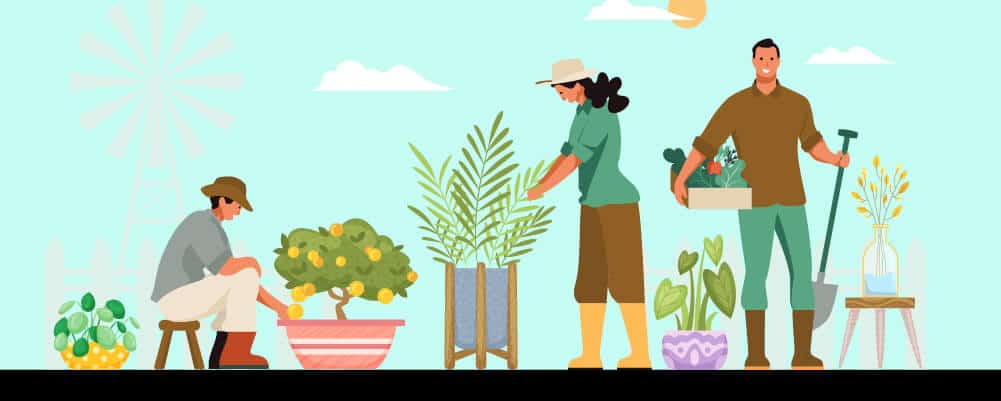
You should always make sure that you choose the right seeds before you start planting. It is wise to learn which plants will grow best when directly seeded in the garden and which plants are better as transplanted plants.
You should also look up a seeding calendar as well. I
If you are looking to buy plants at a nursery to start growing you should look for pots that are equal to plant size, big plants in a small pot will be root bound. Also look for plants which may be stressed, insect damage and yellowing leaves are not a great sign.
Even with plants regularly being watered, hot asphalt will be hard on them. Also inquire about chemical applications such as pesticides as this can be an issue for pollinators, which are crucial to fruits.
Begin Planting
Now it is time to get planting. Most packets and containers will come with instructions which make it easier for you.
Note to try and plant your seed around 3 times as deep as the diameter of the seed itself unless your packet tells you otherwise.
If you are transplanting, then you can usually go with the same depth, however, tomatoes require to be trenched in.
Always be vigilant and wait for the season’s frost to be done, especially with plants like tomatoes, cucumbers and other veg. With flowers this stands true as well, especially for flowers such as sunflowers.
Also note that young plants are more susceptible to damage than older ones, so some younglings need to be protected if planted outside.
If you can replicate outdoor weather inside your home, you could create a germination space, or even get germination pots for some plants until they are strong enough.
Summary

Gardening is so good for our health, being outside in itself is great for us, but gardening helps our minds as well, it gives us something outside of ourselves to focus on and think about.
Communities that focus on gardening often guild strong bonds, and it creates a sense of family. Successfully gardening gives us a sense of accomplishment and joy.
Overall, gardening is far from dull, it gives us everything we need, it is the ideal hobby for people of all ages. Anyone can do it, and so can you!

